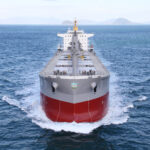-
Via della Fontana 4/a,
34133, Trieste (TS) -
+39 040 9828666
[email protected]

03
Mar 21Batteries in the maritime sector
- 3 March 2021
Affordable and flexible electricity storage technologies are set to drive transitions to clean energy around the world. The maritime sector, due to the power, energy and range requirements of many ships types, will require different solutions including batteries, fuel cells and alternative fuels.
To date, batteries have emerged mainly in leisure boating, ferries and short-sea vessels, where ships are small size and cyclical routes allow occasional recharging. In larger deep-sea vessels, uptake is slow, but unprecedented global emissions regulations are driving change.
Battery application onboard ships can have multiple functional roles:
– Spinning reserve;
– Optimise the operating point of the generators;
– Peak shaving;
– Instant power in support of generators;
– Backup power;
– Harvest energy from on board equipment or renewables.
Batteries therefore help to improve the performance and energy efficiency of the overall vessel, while they can only fully power a vessel for a short distance or duration.
According to statistics as of 3 March 2021 from the Maritime Battery Forum, there are more than 450 ships that already have batteries installed on board or are on order.
The bar chart above shows an upward trend in recent years and we expect these numbers to increase further in the near future!
Data source: Maritime Battery Forum




